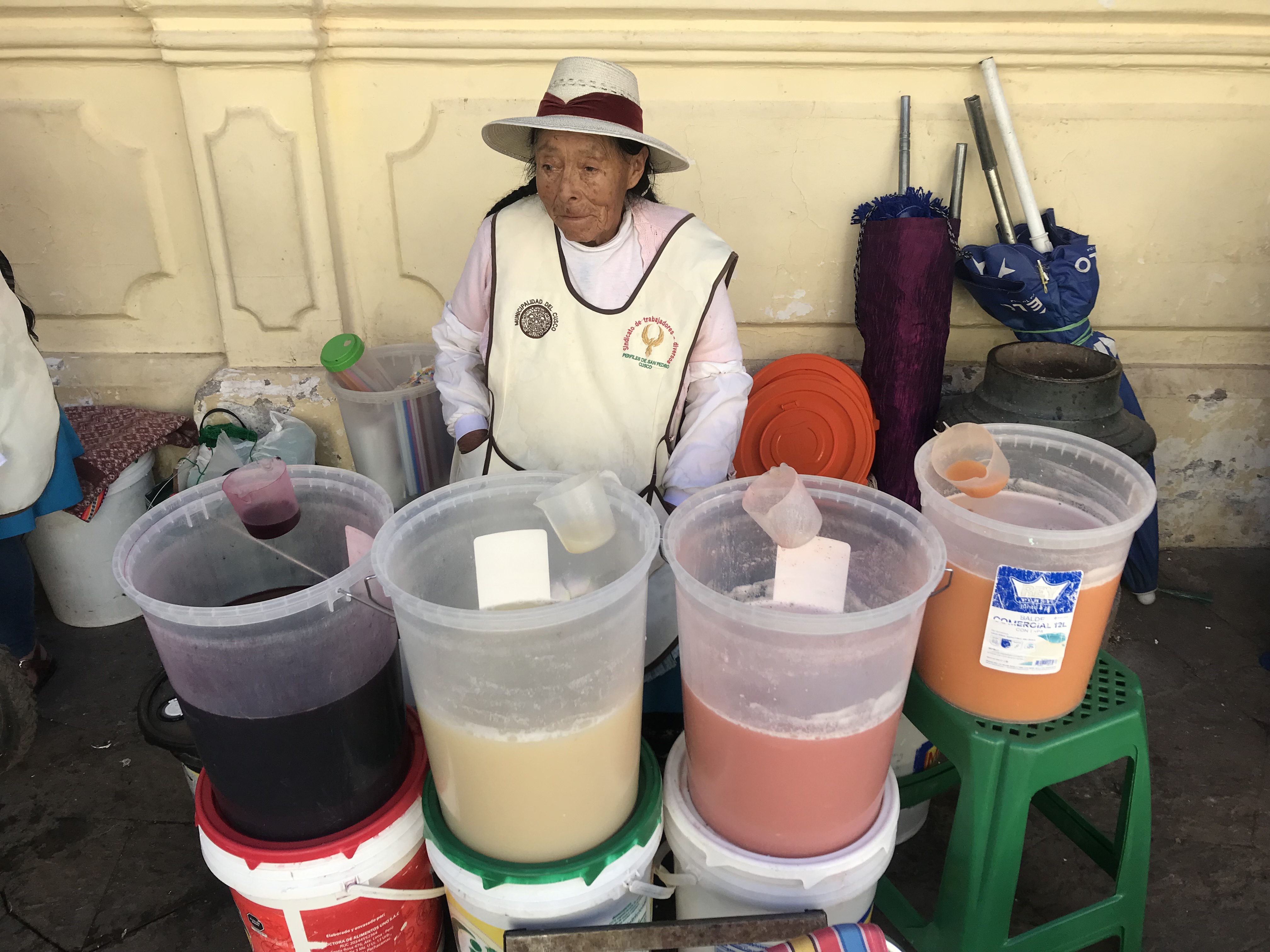
Smelly farts, bloated, abdominal pains. Being unnecessarily irritated, anxious for inexplicable reasons, always tired, depressed, gaining weight. IBS, SIBO, diabetes, autism, MS.
All of the above can be linked to a gut out of balance. Your gut greatly influences not only your physical health but also your mental and emotional wellbeing. That's why it's so important to take good care of your gut. A crucial factor in keeping your gut healthy is feeding the bugs that live in our digestive tract a proper diet, and below we're going to look at just that, and much more!
What exactly do we mean with "the gut"
Many people refer to the colon, also called the large intestine or lower bowel, when speaking of the gut. However, the gut actually consists of the stomach, small and large intestines.
In each of these are living beings that are not you, but, when things are well, both of you provide great benefits to each other. In our gut, we can find yeasts, funghi, viruses, and a lot of bacteria.
The large intestine has the most bugs, and these are (should be) different from those in the small intestine and stomach. This is so because these 3 organs have different environmental conditions due to their place and functions within the digestive process. The stomach is quite acidic (a low PH), the small intestine is more alkaline (a higher PH), and the large intestine is mildly acidic. Different bugs thrive well in an alkaline or more acidic world.
The good guys vs. the bad guys
In the slightly acidic surroundings that are normal and healthy for the large intestine, the bugs that benefit us thrive. The same counts apply to the small intestine and the stomach. In their natural or healthy state, they would be populated by good bugs.
What we eat and drink greatly influences whether our organs have their proper internal conditions. Thus, if we eat a lot of the wrong foods, we create an environment in our digestive system in which the good bugs find it difficult to survive. And then the bad guys can take over. We will get to what a proper diet is, but let me first explain to you this:
What happens if the bad bugs are taking over your belly.
Nasty consequences include smelly breath, a bloated stomach, pain, constipation, and diarrhea. Why does this happen? Let's take a look at the large intestine specifically (aka, the colon, lower bowel).
Toxins and putrefaction
The bugs in the colon metabolise the stuff that wasn't yet digested in the small intestine and stomach. But the bad bacteria unfortunately generate some substances that are slightly toxic for us while doing this. These can get absorbed through the intestinal wall, enter the bloodstream, and overload the liver. If the liver can't handle it, they will enter the rest of our body. One of their possible byproducts is trimethylamine N-oxide, which can build up in your arteries. This makes your arteries harder, which can cause further issues for your overall health.
They are also known to putrify protein particles, which create some kind of foul material that can lodge in the large intestine's wall. This can generate irritation and incite more and more stuff to stick to it, possibly creating a big plaque inside the colon.
Putrefaction is encouraged if the upper digestive organs aren't digesting well. Especially if protein is not properly processed, this will generate those putrifactive issues.
With all those byproducts from their metabotic activities, these undesirable bacteria make the lower bowel more alkaline. When this happens, the body tissues outside of the digestive tract get more acidic. And this is not the best PH for our cells to work in. The result is that less adenosine triphosphate, our energy molecule, gets produced. Also, more sodium will enter the cells, and potassium and magnesium will be excreted. That's bad news, and you can find a more detailed explanation of why that is in this article of mine:
Antibiotics
Antibiotics are also great disturbers of the peace. Antibiotics kill bacteria. There are antibiotics that target specific bugs, but most times doctors prescribe pills that just kill a broad spectrum of different bacteria, including the good guys. Oftentimes, when an antibiotic treatment is completed and both the good and the bad guys have been almost wiped out in the gut, the environment is not yet optimal for the good bacteria to make a comeback. And then the bad guys can start to proliferate.
Other chemical drugs, especially steroid drugs, are known to have similar effects. Environmental pollutants are also not liked by our favourable bacteria.
Candida
A yeast named Candida albicans also lives in our gut, not causing any harm when our digestive system is well. However, when the internal environment is disturbed, Candida can develop itself from loose little spores into a network of filamentous threads. And in this form, it spreads, and it spreads. And while it does this, it is possible that it punctures the intestine wall. Then it can move into the rest of the body and wreck havoc there.
The immune system will notice that something foreign is moving around and start a defence. When Candida is constantly present outside the gut, your immune system will get overstimulated, which contributes to you developing food sensitivities, intolerances, or allergies.
Candida can cause unpleasant infections in the body, like bladder and vaginal infections.
In short, it's a nasty business having to deal with the bad bugs. So what do the good guys do? They actually do us many great favours.

Calendula. Picture by serhii_bobyk on freepik. Calendula is a great herb to help you combat Candida. You can brew the flowers into a tea, but you can also eat them, as well as the green parts of the plant. Often called an women’s herb, she also helps with menstrual issues, nipple infections and can support you to get rid of cysts and tumours in the breasts. Oregano is another herb that can provide Candida relief, and ease menstrual cramps. Rosemary is also a good friend if you are trying to get rid of a Candida infection and can also prevent and diminish hair loss and provide help when you are dealing with anxiety or depression.
The good bugs help process foods
Most nutrients from the food we ate are absorbed in the small intestine, a few in the stomach, and some are left for the large intestine. The bugs help in this process by further processing food rests so things can get absorbed through the organs' walls.
Generate vitamins and more
Some bacteria are also known to generate vitamins, like vitamin B1, 9 and 12, vitamin K and folic acid. They break down more complex carbs that the stomach and small intestine didn't process, and they ferment indigestible fibers. This causes them to produce short-chain fatty acids, which are very useful for our muscles, keep the PH in our colon in check, and help prevent inflammation. These fatties also play their part in forming the gut barrier; they make the intestine wall less permeable. This prevents bacteria and toxins from exiting the colon and entering the bloodstream, where they should not be.
The good bugs also generate some substances that inhibit the growth of disease-producing organisms and tumours. They thus help to prevent intestinal infections, cancers, and all the nasty effects that the presence of the bad bugs generates.
Help recycle bile
Our bacterial friends also metabolise the bile that was active in digestion in our small intestine and that has now reached the colon. When it is broken down, it can be reabsorbed and recycled, as in, reused. This makes it so that the liver doesn't constantly need to produce so much bile.
And they affect your mood, your mental and emotional health.
Your gut and your brain are connected. A great network of neurons transmits signals back and forth all the time. So your gut and your brain talk. When the brain gets nervous about a date or job interview, it will send that info to the gut. Yes, that's why funny business on the toilet can happen when you are nervous. And when the gut feels bad, it informs the brain.
What thus can happen is: you get nervous, and your brain informs the gut "Hello, I'm nervous,". The gut gets nervous as well, gets diarrhoea, and sends signals back up to the brain: "Hey, I've got diarrhoea; I'm not feeling well". And both the brain and the gut have to deal with their own and each other's shit.
Now, what do the gut bugs have to do with this?
They enable this communication as they help create the neurotransmitters needed for the messages to reach the other side. They also generate some chemicals that end up in the bloodstream and eventually reach and influence the brain.
The bad bugs create toxins that can even do damage to your nervous system.
Quite some research is being done on this topic, and it is found again and again that gut dysbiosis (a gut populated by too many of the wrong bugs) is related to issues like anxiety and depression.
This is not to say that if you experience these, you can now cancel all your appointments with your therapist and just focus on your gut health. No. Working with a good therapist is great, but if you do not address your gut health, you might not get completely well. This is so because about 80% of the communication happening between the brain and the gut comes from the gut and goes to the brain. It seems that the gut influences the brain more than the brain does the gut. If you solve your mental stress, your gut can continue to stress out the brain.
The gut-proof diet
Your gut health starts with your mother. Through a natural birth, you pick up her bugs when you pass through her vagina into the world. For mothers, it is thus very important to take care of their bowel flora because they pass on their good and bad bacteria to their young ones. Babies born by c-section have a disadvantage in their gut microbiome because they didn't get these bugs at all.
The next influence is mother's milk. When the mother is healthy, she passes on these good bacteria to her child via her milk. Environment has a role to play, and next in line is the food we eat when we slowly stop taking mother's milk. Environment, food, emotional wellbeing, and proper functioning of the rest of the digestive tract and body then become the food for the bugs in our gut.
What to eat
Oftentimes, fibre is prescribed to fix the gut. And although fibre is good for most, it isn't a quick fix for all, and too much fibre can even further upset certain people, like those experiencing IBS or CEBO.
If you want to know what the best diet is for you, unique you, there is no one else like you, then it is best to work with a specialist. But here follows some inspiration for you...
Prebiotics and probiotics
Prebiotics are foods that support your digestive health and contain substances that the good bugs love. It thus gives them the food they can thrive on. Some examples of specific foods are: bananas, onions, garlic, leeks, sweet potatoes, Jerusalem artichoke, asparagus, seaweed, and dandelion greens.
Probiotics can be bought as supplements, but they can also be foods. They contain the good bacteria that we want in our gut. By adding them to your diet, you can influence your gut microbiome. They are foods like kefir, yoghurt, kombucha, and sauerkraut. But opinions are divided about these and other fermented foods, especially when it comes to mental health issues. If they make you feel funny, then just stop eating them. Listen to your gut.

In the Amazon rainforest we can find many different types of bananas, from bananas as short as a finger to big ones called ‘plátanos’. Here Jorge is showing us some that come in a reddish peel, called ‘Musa acuminata’, or, ‘plátano rojo’. Inside they are also slightly colored. They are said to have more vitamin C and carotenoids than their yellow friends.

This lady is selling ‘chicha’, a fermented, traditional drink from Peru. In different regions you find different types. They can be made from sweet potato, quinoa, corn, mandioc, fruits. I really love these from Cusco. I went for the orange one: carrot.
Next to this, you can keep the following in mind:
- Eat natural foods
- Add foods containing vitamin A and zinc. These support the gut barrier. Carrots have a good amount of A, but zinc isn't very high in many foods. Cauliflower is a good option, as are oysters.
- Take omega-3 fatty acids. They support those bacteria that generate short-chain fatty acids. These omegas also have their effects on neurotransmitters and help prevent inflammation in the brain. You can eat fish, but keep in mind that our planet's waters are polluted with mercury (among other toxins) that bioacumulates in animals living in the water. It is recommended to skip the bigger fish and stick to max 2 or 3 portions a week. You can also get fish oil, and linseed oil is a very good vegan option as well.
- Achieve lots of variety in lots of veggies and fruits. Some say you should aim to eat up to 30 different fruits and veggies a week. They contain a good amount of fibre, antioxidants, minerals, and vitamins that support the overall functioning of the digestive tract. They also contain loads of amino acids. A few, like L-glycine and L-glutamin, are very beneficial for the mucosa (a mucus-forming layer) of the small intestine.
- Mushrooms are good; many of them contain a good amount of amino acids. However, if you are dealing with Candida, you better stay away from them, as they are funghi and can encourage the fungus already growing inside of you.
- Whole grains. They contain more grains and fibre than the processed ones. Especially rice and millet are good for digestion.
- Add some olive oil, best virgin, and cold pressed. Your gut loves it; it prevents inflammation in the nervous system, and some research shows it helps prevent Alzheimer.
- And get yourself some sunlight (please use sunscreen responsibly), as Vitamin D supports the gut barrier as well.
What to eat less of:
- Processed foods. These often lack important nutrients and can disturb the PH in our digestive organs. This includes processed sugar.
- Animal protein. Meat, dairy, and eggs also make our large intestine more alkaline, thus supporting the multiplication of the bad bugs. They have a great amount of unsaturated fats, as well as cholestorol, and the protein is not that easy to digest. If your stomach and small intestine are a bit compromised, they will not be able to process it fully. It will end up in the colon, only partly digested, inviting putrefactive processes.
- Wheat. Although it has some nutrients, it is actually not that good for us, especially in the large quantities that many of us eat it. The gluten in wheat is quite tough to deal with. Wheat also messes with the PH, and the bad bugs love it! If you really love it, then minimise it as much as possible and experiment with some other grains like buckwheat, quinoa, rice, oats.
What else to avoid
- Alcohol
- Black tea and coffee
- The blood sugar rollercoaster
- Stress
- Fake positivism. This is just as toxic as the stress you are suppressing. Find a way to deal with your stress so that you can at least feel more neutral if ultimate happiness is still far away. Reach out for help if, alone, it is too much to handle for you.
Now, let's eat
All these diet tips can be a bit overwhelming, and it shouldn't take away the enjoyment of a good meal. If things got a bit too complicated for you, then you can see if you get along with these simple tips: eat natural foods, eat variety, eat loads of veggies, and eat what is in season and preferably locally grown.
Bom apetite, provecho.
Sources:
Ross and Wilson, Anatomy and Physiology in Health and Illness
Diet and Nutrition, a Holistic Approach, Rudolph Ballantine
Check out this movie to find out some more cool stuff about the gut:
https://www.netflix.com/us/title/81436688?s=i&trkid=0&vlang=en&clip=81770266